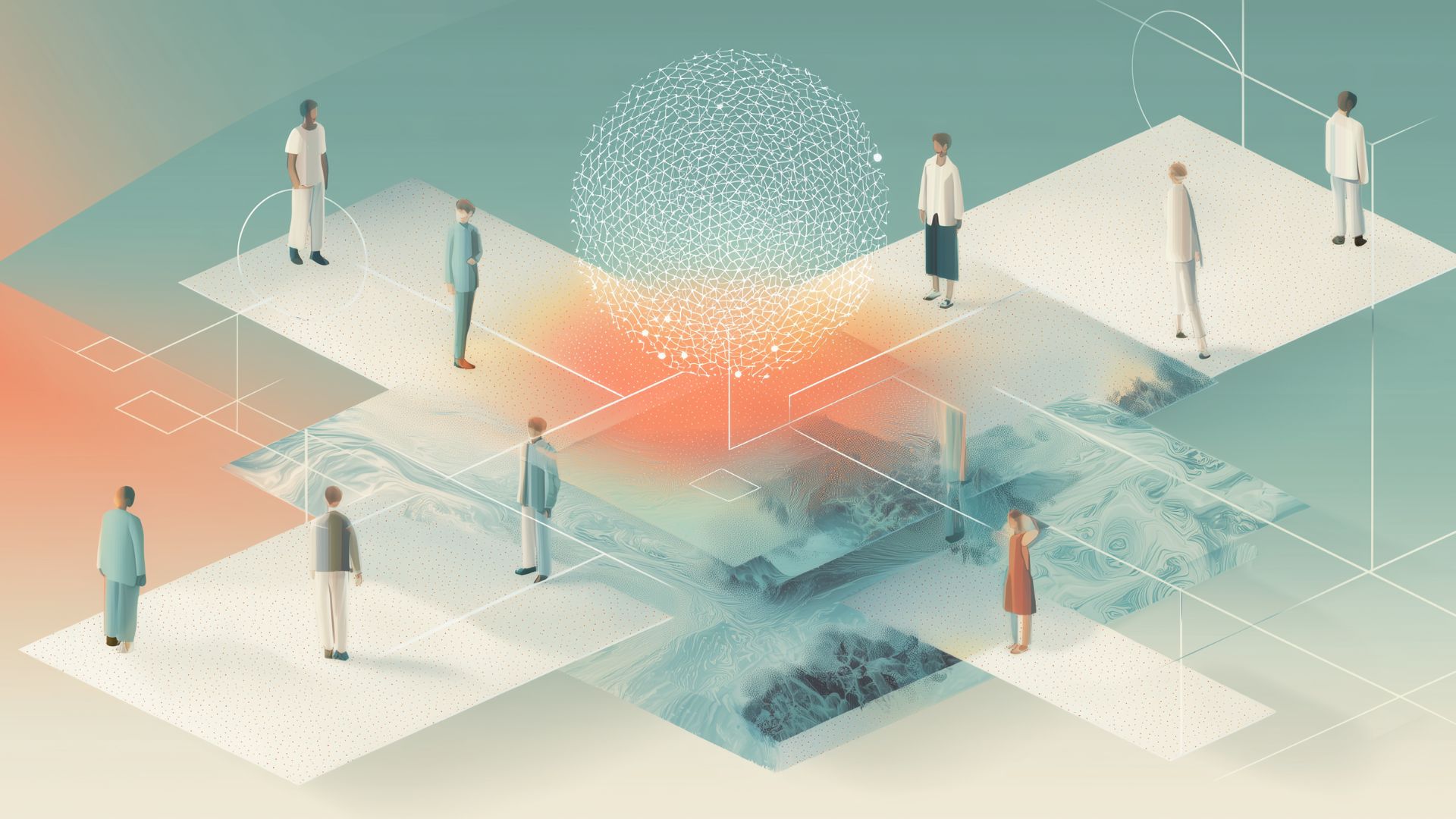What if your GCC team could resolve IT tickets before they're even raised? What if your developers could push high-quality code in half the time? Or could your HR helpdesk answer employee queries instantly 24/7 in any language?
AI talent sees up to 40% pay hikes as GCCs loosen purse strings for GenAI expertise.
It might sound like science fiction, but it's quickly becoming an operational reality for forward-thinking GCCs embracing Generative AI (GenAI). Across India, several GCCs are already moving from vision to execution. One GCC launched a GenAI engineering practice in just 90 days, while another scaled AIOps across manufacturing sites to handle over 50,000 alerts monthly, creating unified observability between OT and IT systems.
In the hustle of driving global transformation, delivering cost efficiency, and supporting enterprise innovation, India's GCCs are juggling enormous expectations. And while you've probably heard a lot about AI over the past year, a fair question remains:
Is GenAI actually useful for my GCC or just another passing tech fad?
This article doesn't offer vague promises or recycled jargon. Instead, it explores the very real, very achievable ways GenAI can transform how GCCs operate, from automating IT services and speeding up software delivery to reimagining shared services and fueling agile innovation.
So if you're ready to go beyond the hype and get a clear, strategic view of how GenAI can turn your GCC into a powerhouse of efficiency and creativity, you're in the right place.
Let's dig in.
The GCC Mandate Is Changing, And GenAI Can Help
India's GCCs are no longer just back offices. They are expected to:
- Drive global digital transformation programs
- Own product roadmaps and innovation charters
- Deliver resilient and cost-efficient operations
But delivering on these goals isn't easy. Persistent challenges include alignment gaps with the parent enterprise, lack of holistic transformation roadmaps, and difficulty scaling POCs into production-ready outcomes. Talent shortages around emerging tech and the struggle to retain GenAI specialists only compound the issue.
GenAI offers a new way forward not by replacing existing systems or people, but by augmenting them. It enables GCCs to shift their mindset from cost savings to speed-to-market, fosters a local ecosystem of co-innovators, and helps build lasting value.
When strategically implemented, GenAI becomes a force multiplier across four key areas:
- IT Operations and Service Management (AIOps)
- Software Engineering and DevOps
- Shared Services and Business Processes
- Customer Experience and Innovation Labs
Let's break down each area with use cases that speak directly to GCC challenges.
Transforming IT Operations with GenAI-Powered AIOps
IT operations in GCCs are often overwhelmed with alerts, tickets, and SLA expectations. Traditional ITSM platforms are effective but not intelligent. GenAI brings contextual understanding and predictive capabilities into operations.
Practical Applications in GCCs:
- Automated Incident Triage: GenAI interprets user-submitted tickets in natural language, routes them correctly, and offers instant resolutions for repetitive problems.
- Predictive Problem Management: GenAI analyzes logs and monitoring data to detect anomalies before they cause disruptions. One manufacturing GCC built a dedicated AIOps CoE, integrating cross-functional pods across SRE, platform engineering, and data science delivering real-time remediation and predictive maintenance.
- Conversational IT Assistants: Employees interact with GenAI bots to reset access, update configurations, and troubleshoot problems, reducing L1/L2 workload dramatically.
The result? Improved uptime, reduced false positives, and IT teams that spend more time solving and less time reacting.
Engineering Acceleration Through GenAI Copilots
GCC engineering teams are under constant pressure to deliver innovation at scale. But legacy systems, time-zone lag, and steep onboarding curves often impede velocity.
A financial services GCC tackled this head-on by building a GenAI engineering practice in just 90 days. The roadmap included identifying key use cases, selecting interoperable tools, running talent discovery hackathons, and launching a structured upskilling bootcamp.
How GenAI Enables Efficiency:
- Code Suggestions & Generation: GenAI tools help generate boilerplate code, refactor legacy functions, and speed up API development.
- Test Automation: Automatically generate unit and integration tests, simulate edge cases, and highlight vulnerabilities.
- Smart Documentation: Query large codebases using natural language, accelerating onboarding and knowledge transfer.
Engineers are evolving into GenAI Integration Engineers, LLMOps Experts, and AI Model Validators transforming traditional roles like DevOps and QA into next-gen AI contributors.
Enhancing Shared Services: From Automation to Augmentation
GCCs house shared services across HR, finance, procurement, and compliance. While RPA handles routine tasks, GenAI takes it further with intelligent context and adaptability.
Where GenAI Makes a Difference:
- Smart Document Understanding: Extract, validate, and analyze context-rich information from invoices, contracts, and compliance documents using retrieval-augmented generation (RAG) and vector search.
- HR Self-Service Assistants: Provide policy-aware, multi-lingual, real-time responses to employee queries without scripted flows.
- Procurement Insights: Summarize vendor quotes, identify risk clauses, and compare contracts through natural language prompts.
Parkar's bootcamp-driven upskilling model empowered traditional business analysts to evolve into GenAI Business Analysts further driving strategic outcomes.
Fueling Innovation and CX with GenAI Toolkits
Innovation labs inside GCCs often struggle with long iteration cycles, dependency on headquarters, and feedback bottlenecks. GenAI toolkits empower local teams to build and test faster.
Innovation Use Cases:
- Persona Simulation: Run campaigns and prototypes through AI-simulated personas to reduce costly field research.
- UX Content Creation: Prompt engines generate tooltips, error messages, and onboarding content in multiple languages and tones.
- Hackathons and Labs: Parkar-facilitated sprints help teams prototype everything from internal knowledge copilots to predictive dashboards, building grassroots innovation capability.
GCCs embracing this "build vs. buy" innovation mindset are enabling faster MVPs, better global alignment, and a culture of continuous experimentation.
Implementing GenAI: A GCC-Centric Strategy
GenAI success demands more than sporadic pilots. It requires structured execution aligned with GCC capabilities and business goals.
5-Step GenAI Playbook for GCCs:
- Identify GCC-Relevant Use Cases
Prioritize areas with strong pain points and measurable outcomes. - Choose Modular, Interoperable Platforms
Adopt tools like OpenAI, LangChain, PyTorch, TensorFlow, Azure ML, LlamaIndex, and Humanloop to ensure flexibility with your tech stack. - Build Cross-Functional Teams
Blend domain SMEs with AI experts to ensure business context is baked into workflows. - Invest in GenAI Literacy
Focus on prompt engineering, API integrations, CI/CD for ML, and model evaluation across roles via bootcamps and practical labs. - Measure Impact Beyond Automation
Track improvements in lead time, user satisfaction, and innovation velocity not just cost savings.
This framework ensures GenAI doesn't become an isolated initiative but a core pillar of the GCC transformation journey.
Conclusion: GenAI Is the Catalyst. GCCs Must Lead.
India's GCCs have become strategic hubs for innovation, agility, and enterprise value. GenAI accelerates this evolution not by replacing what works, but by embedding intelligence across operations, engineering, and shared services.
This isn't about short-term automation. It's about building a sustainable edge with systems that learn, adapt, and scale with business needs. GenAI helps GCCs move faster, make smarter decisions, and achieve outcomes once considered out of reach.
Impact requires disciplined execution, clear use cases, secure architecture, and a culture ready to test, learn, and scale. The time to act is now. GCCs that move with focus will set the next global benchmark.
At Parkar, we help GCCs lead this shift, combining strategic vision with deep GenAI and engineering expertise to drive measurable results.
GenAI isn't a trend. It's a turning point. GCCs that lead will define the enterprise of the future.
FAQs
1. How is GenAI different from traditional automation?
Traditional automation is rule-based. GenAI understands language and adapts to ambiguity enabling use cases like document summarization, ticket triage, and employee support.
2. What about data security and compliance risks?
Use GenAI platforms with access controls, anonymization, and audit logs. Involve InfoSec and Legal teams early to align with governance requirements.
3. Can legacy-heavy GCCs benefit from GenAI?
Absolutely. GenAI complements legacy systems by extracting value from outdated documentation and refactoring old codebases, making it ideal for mature GCC environments.
4. Do we need to replace our existing platforms to adopt GenAI?
Not at all. GenAI integrates through APIs into existing ITSM, ERP, CRM, and even OT systems ensuring continuity while layering intelligence on top.











.jpg)







